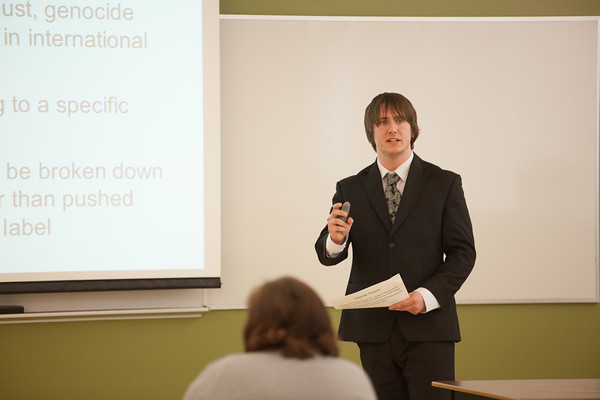St. Thomas University has begun accepting applications for its 20th annual Student Research and Ideas fair, hoping to rebound in popularity post-COVID-19.
Applications to the fair are due Feb. 20 and Peter Toner, associate vice-president of research at STU, hopes participation continues to grow after a COVID-19 downturn.
The fair, which showcases student research projects, was twice as popular before COVID-19. There were over 60 participants in 2020, compared to last year’s fair which had 32 participants. The fair is in a “process of rebuilding” and “regaining interest,” said Toner.
“[The fair] grew quite steadily up until COVID-19, quite memorably the 2020 research and ideas fair was on the day the university shut down,” said Toner. “That fair had upwards of 60 students.”
Toner, who has been involved with the fair in some capacity since it began 20 years ago, said there are multiple reasons why participant numbers have dipped post-COVID-19.
Coming out of quarantine and mask mandates, students may be hesitant to present in front of a room of people, said Toner. He also mentioned STU’s dip in enrolment since 2020, which creates a smaller pool of prospective participants.
“We’re also dealing with a student cohort who maybe don’t remember the last in-person fairs when they were more of a thing,” said Toner.
He added that interest was gradually building for five or six years leading up to the “Covid break.”
Students benefit from the fair as it develops research ability, public speaking and prepares students for graduate school — this is true for Carol Álvarez and Erin Hurley.
Carol Álvarez is a recent STU gerontology graduate that presented a senior care project. Her idea paired social work and gerontology students with older adults to understand how students can address social isolation in nursing homes.
Álvarez said that she benefited from the public speaking opportunity.
“It is awesome,” she said. ”It helps with your public speaking and you are sharing the findings from your project and the attendee gets all your knowledge.”
Having professional experience for graduate school and job applications was another benefit for Álvarez. Currently working at the Multicultural Association of Fredericton, she hopes to eventually use her experience to apply to a gerontology graduate program.
Erin Hurley, a third-year environment and society honours student, agrees with Toner and Álvarez. Hurley presented part of the Plutonium project, analyzing New Brunswick’s proposed small nuclear reactors. She had a “great experience” with the fair and plans to return this year with multiple projects.
“I am a bit intimidated by public speaking so that was a great experience … It really helps if you are doing a research project to just solidify what you’re doing in your mind and how to move forward and that is really important for grad school,” said Hurley.
Toner understands how students can benefit for graduate school and future academic life. He said the fair offers experience with “knowledge mobilization” or sharing your research through conference presentations.
“We’re dealing with the idea of trying to distill your sometimes complicated research results … into a relatively small timeframe … So there’s a clear benefit for students who might end up in graduate school because they’ll be doing that exact kind of thing,” said Toner.
Presentations for this year’s fair will take place on Mar. 15 and Toner encourages students to participate.
“I try to encourage my own students to exceed expectations as much as possible. So I mean, it is a voluntary thing … It’s extra effort, it’s extra time. I would like to think that students approaching the end of their time here at STU would welcome that kind of challenge,” said Toner.
With files from Gisele Gallibois.

